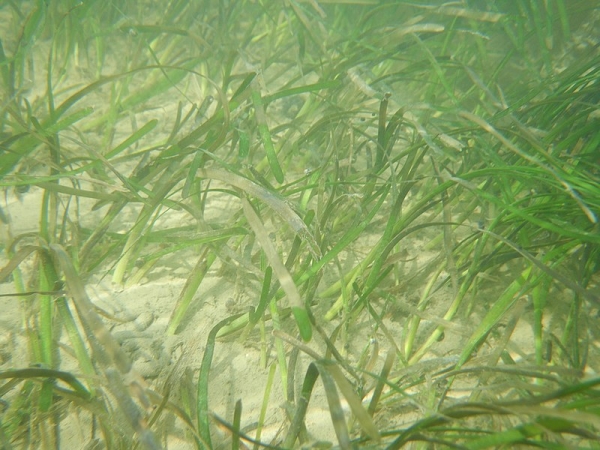An annual survey led by VIMS researchers mapped 76,462 acres of underwater grasses in the Chesapeake Bay and its tributaries in 2022. Their report, published today, documents a 12% increase in submerged aquatic vegetation (SAV) in the regions mapped by the team, with lead researcher Dr. Christopher Patrick noting, “For the most part, we had a really encouraging year for SAV throughout the Bay.”
Underwater bay grasses are a vital part of the Bay’s ecosystem. They provide habitat and nursery grounds for fish and blue crabs, serve as food for animals such as turtles and waterfowl, clear the water by reducing wave action, absorb excess nutrients, and reduce shoreline erosion. VIMS tracks the abundance of underwater grasses as an indicator of Bay health for the Chesapeake Bay Program, the federal-state partnership established in 1983 to monitor and restore the Bay ecosystem. Using aerial surveys flown from late spring to early fall each year, VIMS researchers estimate the acreage of underwater grasses present in the Bay.
Read more at Virginia Institute of Marine Science
Photo Credit: Nozères, Claude via Wikimedia Commons


